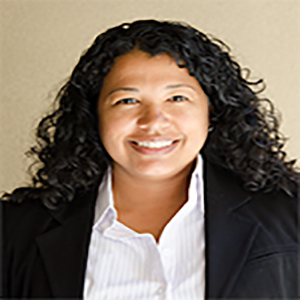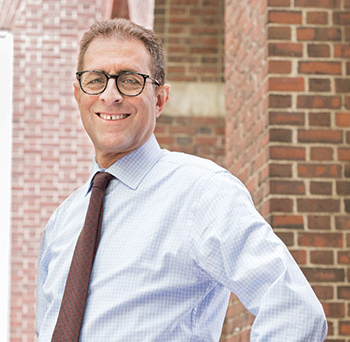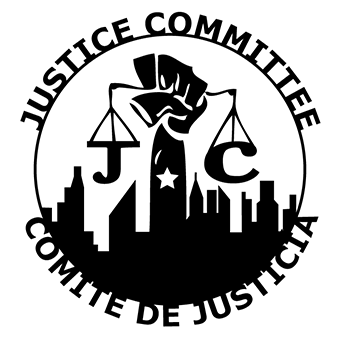The rallying cry has been amplified by an army of activists flooding the streets and social media, finding success in a message that only months ago seemed unfathomable.
Of course, these are not normal times, as the novel coronavirus (COVID-19) pandemic and the nationwide anti-racism and police brutality uprisings have made clear.
From New York to San Francisco and Washington, D.C. to Los Angeles, politically empowered Americans are demanding their representatives cut police budgets in favor of struggling programs that have long been sacrificed for more robust law enforcement. After years of watching the country’s incarceration rate skyrocket, activists have amassed a lengthy list of reform proposals: demilitarizing the police, removing officers from school settings, instituting hiring freezes, investing in alternatives to incarceration programs, and increasing transparency and accountability.
In response, more than a dozen municipalities have planned to make cuts or at least committed to scrutinizing police budgets. The Minneapolis City Council pledged an even bolder plan: dismantling its police department entirely and starting anew. Adding to the tumult, the country is still in the grips of a pandemic that has devastated black communities.
The red pen is out in Los Angeles, where Mayor Eric Garcetti pledged to invest $250 million in community programs; San Francisco, which has proposed redirecting police funds to the community; and New York City, despite its self-avowed “progressive” mayor, Bill de Blasio, initially expressing skepticism about redistributing funds from the NYPD's gargantuan $6 billion budget. Separately, the New York Gov. Andrew Cuomo last week signed a package of reforms into law, including repealing a once innocuous civil rights law called 50-a that kept police disciplinary records sealed.
“It's head-spinning how quickly that caught on,” says Barry Friedman, professor of law at NYU School of Law and the director of its Policing Project.
Even as the nascent defund police movement makes strides, it’s been criticized by political elites as confusing and unhelpful in a presidential election year, with commentators and the public misinterpreting “defund” to mean “abolish”—though some activists are unapologetically supportive of the latter. As the defund police movement has taken hold and with misinformation abound, we reached out to experts and those advocating for major reforms in the urgent push to reimagine policing in America.
Understanding Defund Police & America’s Mass Incarceration State
The defund police movement is one of the most ambitious reform policy initiatives, and has garnered support among thousands, if not millions, of demonstrators. It demands nothing short of a complete sea change in policing.
While activists have for years petitioned lawmakers to reduce police budgets and bolster social programs, education, and mental health services, the catalyst for widespread such a shift was Floyd’s gut-wrenching slaying, which was broadcast to the world in real time.
Derek Chauvin, the now-infamous Minneapolis police officer, pressed his knee against Floyd’s neck for more than eight minutes as the 46-year-old cried “I can’t breathe” and shouted for his deceased mother. He has since been charged with second-degree murder. Three other officers involved in Floyd’s death were charged with aiding and abetting second-degree murder.
Yet the movement didn’t materialize out of thin air. It’s been part of a broader effort to reform the criminal justice system, which incarcerates more than 2.2 million people a year, disproportionately Black Americans. Racial disparities pervade the entire criminal justice system, from drug arrests and traffic stops to wrongful convictions and arrests of juveniles.
Since the 1970s, spending on jails and prisons has increased 1,000 percent and police budgets have spiked nearly threefold. With “law-and-order” politics consuming America in the 1970s, especially with the revitalization of the racist war on drugs and an effort to make prison sentences more punitive, America’s incarcerated population exploded to record heights, eclipsing nations the United States regularly condemns for human rights violations. President Bill Clinton’s notorious 1994 crime bill led to a boom in prison construction and investments in more officers, contributing to a 28-percent increase in cops between 1990 and 1999, even as his administration gutted welfare programs.
As Bloomberg reported, policing has made up nearly 4 percent of state and local budgets over the last five decades, though crime has dropped dramatically since its peak in 1991. In effect, the defund police movement has been a long time coming, though the killings of Floyd and Breonna Taylor, an EMT gunned down in her own bedroom as she slept, combined with the brutalization of protesters nationwide, has infused renewed urgency into the cause.
London Arnold of the Justice Committee, a New York City-based grassroots organization that fights against police brutality and discrimination, criticized DeBlasio for budgeting $6 billion to the NYPD while proposing cuts elsewhere.
“The defund movement is around taking money that is currently allocated to the NYPD and reallocating those funds to different services like the Department of Youth and Community Development, the Department of Education and other areas,” she tells News Beat podcast.
The Justice Committee is also seeking an end to police responding to calls involving people in emotional distress or suffering from mental illness, and policing inside of schools, among other reforms.
“And so it's not just about adding funds to those departments or areas within the budget, but actually the reallocation,” Arnold adds. “That's the main emphasis that we're trying to make, that we don't need a budget for the NYPD of $6 billion. It's outrageous.”
Nonprofit Communities United for Police Reform has called for a minimum of $1 billion slashed from the NYPD’s budget, and to divert those funds to “services and core needs for communities impacted by police brutality and the COVID-19 pandemic, especially Black, Latinx, and other communities of color in New York City.
“I really view the defunding movement as a call from people in communities to be saying, ‘The police are not helping, they're harming,” says NYU’s Friedman. “And meanwhile, we have a lot of unmet needs that society is not addressing. So let's stop pumping money into the institution that's harming us and give money to the institutions that we need.”
Reimagining Policing
Friedman had set out to examine the role of the police in society well before the latest spasm of police violence.
In April, Friedman published an article titled “Disaggregating the Police Foundation,” offering “a range of solutions designed not to reduce harm collaterally, but to reduce altogether the footprint of force and law. Police need to be trained in radically different ways.”
It’s a departure from reform recommendations that have largely failed to address the systemic problems that communities repeatedly condemn. He forensically examined the function of policing and the underlying problems that enable the current culture, writing: “[W]hen we focus primarily on the collateral harms of policing, we take our eyes off what ought to be the ultimate goal of society: public safety.”
For example, in an interview with News Beat podcast, Friedman questioned whether conducting traffic stops or answering domestic violence calls, among other responses, should be a police function. As for the latter, he says: “You may need social work skills to try to diagnose what's going on in that particular domestic unit,” noting they may not be adequately trained for such volatile situations.
“There's a function that policing serves, but there's a lot of what we send police to do that really could be addressed with a different skill set,” continues Friedman.
Recently appointed with former U.S. Attorney General Loretta Lynch as a special advisor to New York Attorney General Letitia James’ investigation of NYPD activities during recent protests, Friedman says he has a dream of a “completely reimagined idea of first responders.”
Under his approach, officers would undergo substantially more training for a wide range of disciplinary skills, he says.
“They would know how to use some force, and they would know about the law, but they would also know about mediation, social work, and EMT, and conflict resolution,” Friedman explains. “And they would be incentivized in a completely different way than the police are today. They’d get credit...when they solve problems. They’d get rewarded for not using force. They’d get rewarded for not bringing people into the criminal justice system, unless absolutely necessary. They’d get rewarded for solving the problem that caused them to be called to the same address 10 times.”
Friedman’s Policing Project has experience on this front. It worked with the Camden County Police Department in New Jersey to revise its use-of-force policy. Calling the constitutional principles established by the U.S. Supreme Court “pathetic,” Friedman says Camden’s revamped guidelines respect the sanctity of life.
The policy includes a half-dozen principles that prioritize de-escalation and permits deadly force only as a last result. When force is used, it must be considered proportional to the situation.
“You have an obligation to avoid using force,” Friedman says of the policy.
While the reform movement is gaining momentum, police departments and unions that protect officers are expected to put up a fight. Unions, specifically, have amassed massive power, making disciplining cops especially difficult.
“We need to start to have a more capacious understanding of what is public safety,” Friedman says. “And then we need to target our resources toward achieving that... The concept of policing, the sort of like, we're all at personal risk from bad people at every moment, our homes are being broken into, and our bodies violated—and there are certainly neighborhoods and communities in this country that have very serious problems of that nature. It is not most of the country.
"And the really sad irony is that the places that suffer the most from this are the very ones that are getting the least help [and] the most harm.”









